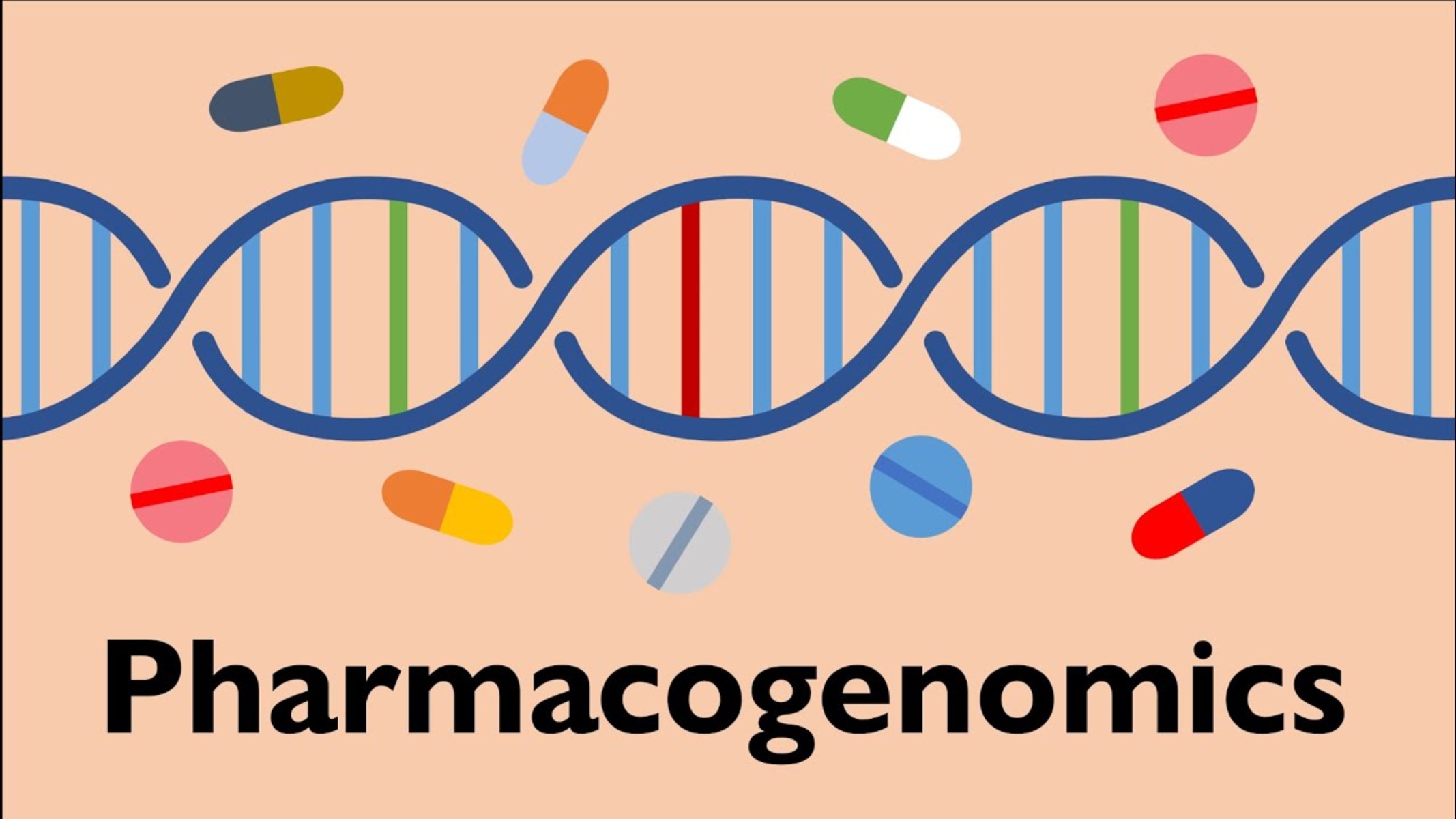
Pharmacogenomics is a rapidly emerging field that combines the study of genetics and pharmaceuticals. It involves understanding how an individual’s genetic makeup influences their response to certain drugs. This fascinating area of research holds immense potential in revolutionizing personalized medicine and optimizing drug therapies.
In this article, we will delve into the enigmatic world of pharmacogenomics and explore 11 captivating facts that shed light on this exciting field. From the impact of genetic variations on drug metabolism to the potential for tailored treatments based on individual genetics, we will uncover the key insights that make pharmacogenomics such a significant field of study.
So, buckle up and join us on this enlightening journey as we uncover the mysteries of pharmacogenomics and gain a deeper understanding of how genetics and drugs intertwine in shaping personalized medicine.
Key Takeaways:
- Pharmacogenomics uses genetics to personalize medicine, making treatments safer and more effective by matching drugs to a person’s unique genetic makeup. It’s like creating custom-fit medicine for each individual!
- Pharmacogenomics is shaping the future of healthcare by revolutionizing cancer and psychiatric treatments, and even helping kids receive safer medications. With ongoing research, it’s paving the way for personalized and precise medicine worldwide.
Pharmacogenomics: The Intersection of Pharmacology and Genomics
Pharmacogenomics is an innovative field of study that encompasses the unique relationship between an individual’s genetic makeup and their response to specific drugs. By examining an individual’s DNA, scientists can identify genetic variations that may influence drug efficacy, dosage requirements, and potential adverse reactions. It allows for personalized medicine that is tailored to an individual’s genetic profile, leading to more effective and safer treatments.
Uncovering the Genetic Blueprint for Drug Response
Pharmacogenomics seeks to unravel the intricate genetic blueprint that determines how an individual responds to medications. By analyzing specific genes, including those involved in drug metabolism and transport, pharmacogenomics enables healthcare professionals to determine the most suitable medications and appropriate dosages for each patient. This approach optimizes therapeutic outcomes while reducing the risk of adverse reactions.
From Genetic Variations to Altered Drug Metabolism
One of the essential aspects of pharmacogenomics is the study of genetic variations that affect drug metabolism. Certain variations in genes such as cytochrome P450 enzymes can lead to altered drug metabolism rates. This understanding helps healthcare providers tailor drug selection and dosages to ensure optimal efficacy and minimize the potential for toxicity.
Enhancing Drug Safety with Pharmacogenomics
Pharmacogenomics plays a crucial role in enhancing drug safety. By identifying genetic markers that indicate an increased risk of adverse drug reactions, healthcare professionals can make informed decisions on medication selection and dosage adjustments. This personalized approach reduces the likelihood of serious side effects and improves patient outcomes.
Optimizing Drug Efficacy Through Genetic Testing
Genetic testing in pharmacogenomics can determine an individual’s response to a specific drug. By analyzing genetic variations, healthcare professionals can predict whether a particular medication will be effective for a patient or if alternative therapies should be considered. This approach minimizes the trial-and-error process often associated with finding the most suitable treatment.
Pharmacogenomics and Cancer Treatment
The field of pharmacogenomics has revolutionized cancer treatment by aiding in the identification of specific genetic markers that may influence drug response. This knowledge allows oncologists to prescribe targeted therapies that selectively attack cancer cells while sparing healthy cells, leading to improved treatment outcomes and reduced side effects.
Harnessing the Power of Pharmacogenomics in Psychiatric Care
Pharmacogenomics holds immense potential for psychiatric care. By analyzing an individual’s genetic variation, healthcare providers can customize psychotropic medication selection to maximize efficacy and minimize adverse effects. This approach is particularly vital in treating conditions such as depression, anxiety disorders, and bipolar disorder.
Implications for Precision Medicine
Pharmacogenomics forms the foundation of precision medicine, an emerging approach to healthcare that takes into account individual genetic variations, environmental factors, and lifestyle choices. By tailoring treatment plans to an individual’s unique genetic profile, precision medicine seeks to optimize therapeutic outcomes and improve overall patient well-being.
Pharmacogenomics in Pediatric Medicine
The application of pharmacogenomics in pediatric medicine holds great promise. By analyzing genetic variations in children, healthcare providers can identify optimal drug dosages and minimize the risk of adverse reactions. This personalized approach ensures that children receive medications that are safe and provide the maximum benefit for their specific genetic makeup.
Challenges and Limitations in Pharmacogenomics
Though pharmacogenomics has revolutionized personalized medicine, there are challenges and limitations that need to be addressed. These include the identification of relevant genetic variants, the complexity of gene-drug interactions, and the cost and availability of genetic testing. Ongoing research and technological advancements are critical in overcoming these barriers and expanding the reach of pharmacogenomics.
The Future of Pharmacogenomics
The future of pharmacogenomics holds immense possibilities. With advances in technology and a deeper understanding of human genetics, pharmacogenomics will continue to drive the development of tailored therapies and precision medicine. It has the potential to revolutionize healthcare by providing individuals with effective and safe treatments based on their unique genetic makeup.
Conclusion
In conclusion, pharmacogenomics is a fascinating field that has the potential to revolutionize the way we approach healthcare. The enigmatic nature of this discipline keeps researchers and scientists intrigued, constantly uncovering new mysteries and insights. From uncovering genetic variations to tailoring drug therapies, pharmacogenomics offers personalized medicine that can enhance the efficacy and safety of treatments.As our understanding of genetics and genomics deepens, we can expect pharmacogenomics to play a crucial role in optimizing drug response and minimizing adverse reactions. By identifying specific genetic markers and understanding how they interact with different medications, healthcare professionals can make informed decisions about drug choices and dosages.Ultimately, the integration of pharmacogenomics into clinical practice has the potential to improve patient outcomes, reduce healthcare costs, and pave the way for a new era of precision medicine.
FAQs
Q: What is pharmacogenomics?
A: Pharmacogenomics is the study of how an individual’s genetic makeup influences their response to medications.
Q: How does pharmacogenomics differ from pharmacogenetics?
A: Pharmacogenomics focuses on the interaction between a person’s entire genome and drug response, while pharmacogenetics focuses on specific genes and their impact on drug metabolism.
Q: How can pharmacogenomics benefit patients?
A: Pharmacogenomics can help identify the most effective medication and dosage for an individual, reducing the likelihood of adverse drug reactions and maximizing therapeutic outcomes.
Q: Are there any limitations to pharmacogenomics?
A: Although pharmacogenomics holds great promise, it is still an emerging field. More research and clinical trials are needed to fully understand its implications and integrate it into routine healthcare practice.
Q: Is pharmacogenomic testing available to everyone?
A: While pharmacogenomic testing is becoming more accessible, it is not yet widely available to everyone. However, as technology advances and costs decrease, the availability and affordability of testing are expected to increase.
Q: Can pharmacogenomics be used for all medications?
A: Pharmacogenomics can be used for a wide range of medications, but its application may vary depending on the drug and the specific genetic variations involved.
Q: Is pharmacogenomics only relevant for treating diseases?
A: No, pharmacogenomics can also be valuable in guiding drug therapy for preventative care and optimizing medication choices for conditions such as depression, anxiety, and pain management.
Q: How can healthcare professionals incorporate pharmacogenomics into their practice?
A: Healthcare professionals can integrate pharmacogenomic information into medication selection, dosing decisions, and patient counseling, enhancing the precision and effectiveness of treatment plans.
Q: Is pharmacogenomics covered by insurance?
A: Coverage for pharmacogenomic testing may vary depending on the insurance provider and specific policies. It is advisable to check with your insurance company to understand the extent of coverage.
Q: What is the future of pharmacogenomics?
A: The future of pharmacogenomics holds immense potential for personalized medicine, where treatments can be tailored to individual genetic profiles, leading to safer and more effective healthcare outcomes.
Pharmacogenomics revolutionizes personalized medicine, optimizing drug therapy based on individual genetic variations. Genetic testing enhances safety and efficacy, particularly in cancer treatment and psychiatric care. Despite challenges, pharmacogenomics holds immense potential for precision medicine and pediatric care. Explore the fascinating world of bioinformatics tools to further understand how cutting-edge technologies are transforming healthcare and unlocking the secrets of the human genome.
Was this page helpful?
Our commitment to delivering trustworthy and engaging content is at the heart of what we do. Each fact on our site is contributed by real users like you, bringing a wealth of diverse insights and information. To ensure the highest standards of accuracy and reliability, our dedicated editors meticulously review each submission. This process guarantees that the facts we share are not only fascinating but also credible. Trust in our commitment to quality and authenticity as you explore and learn with us.


